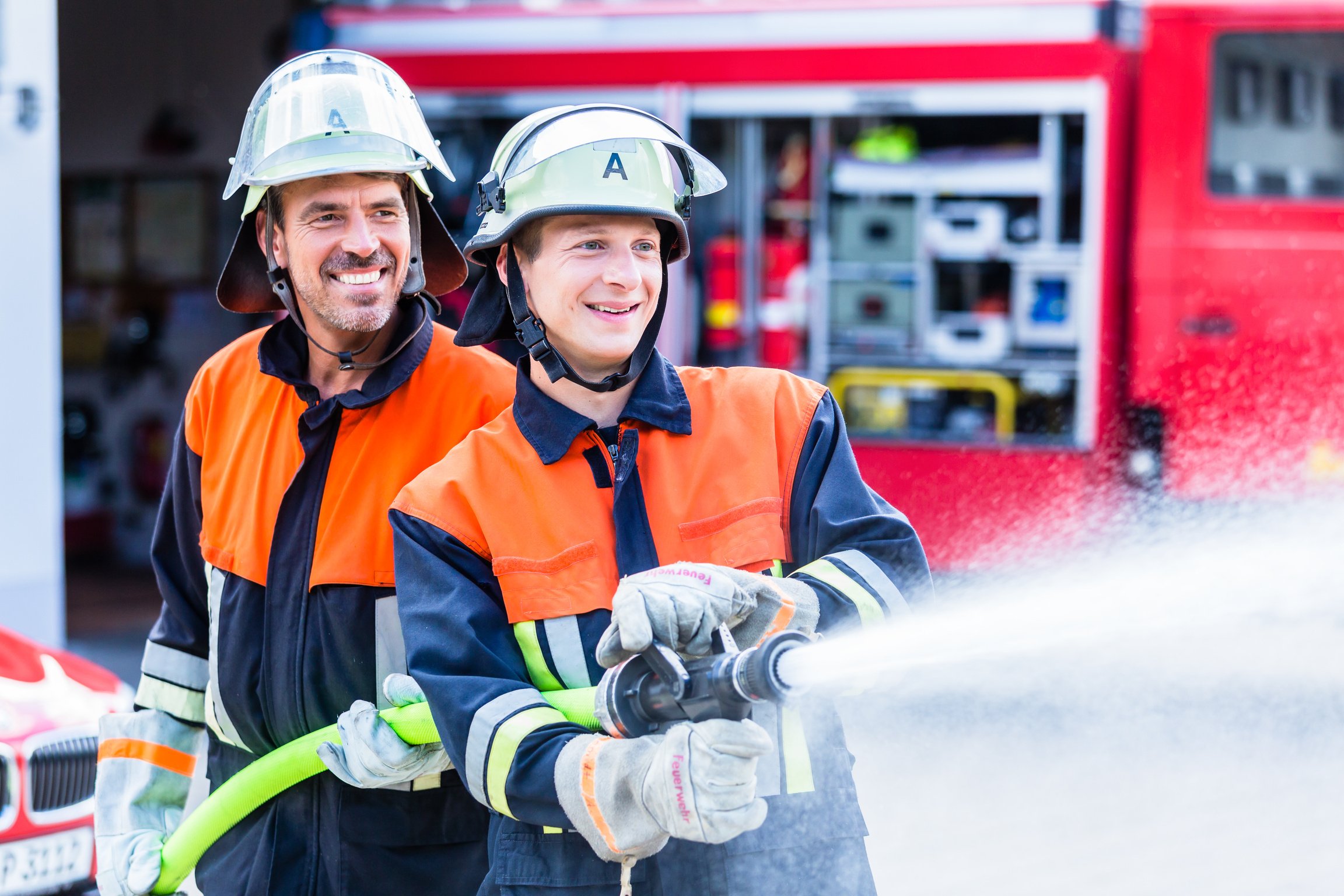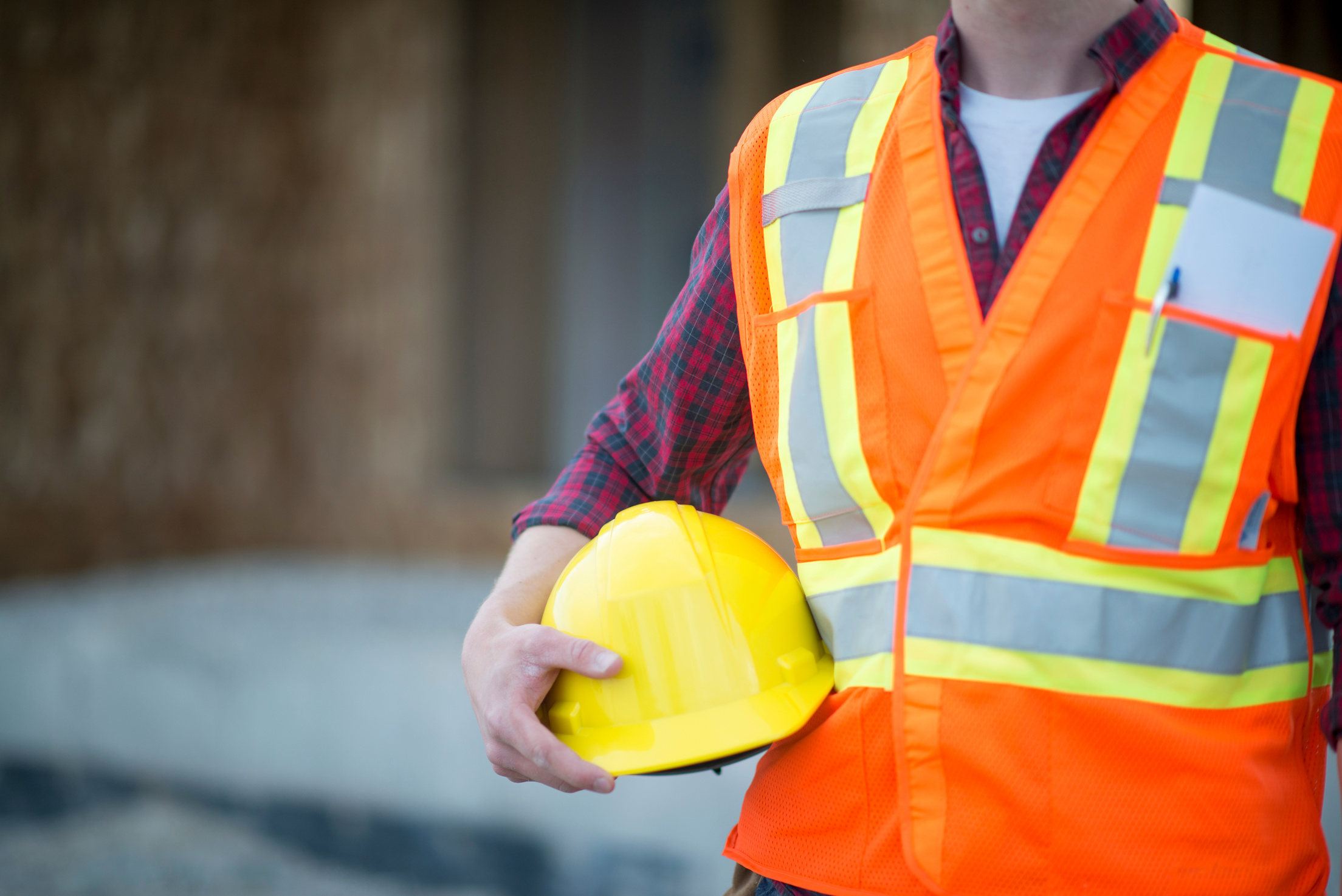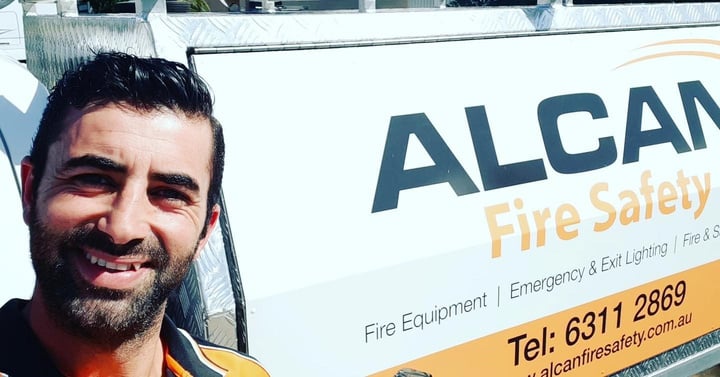Our fundamental principles revolve around safety, integrity, and delivering top-notch service, influencing every choice we make.

Placing our clients' needs first is paramount, and we are committed to collaborating to meet your business and workforce needs.
ALCAN Fire Safety is committed to aiding Western Australian businesses in adhering to Australian Standards for fire safety. Our services help clients meet insurance requirements and protect their assets, especially their staff, during emergencies.
Quality and Standardisation
The saying ‘we are big enough to deliver but small enough to care’ is particularly applicable to ALCAN Fire Safety. We have the capability to service large clients such as Veolia Australia, Curtin University, The Perth Airport and more high calibre clients, yet we are able to maintain a personalised experience and tailored service.
Occupational Health and Safety
We have robust safety systems in place to ensure the safety of our employees and clients. Our employees wear the appropriate PPE to site, use our hazard/accident reporting forms and carry out risk assessment prior to commencing work tasks.
We also insist that our training participants wear specified minimum PPE when participating in our training courses. Our full occupational Health and Safety systems and procedures are available for clients as we progress our working relationship.
Associations, Accreditation and Awards
- Member of the Fire Protection Association of Australia; the peak governing body for the fire industry in Australia.
- ALCAN Fire Safety is certified to carry out service and maintenance of fire equipment and systems. All trainers are qualified and hold a Certificate IV in training and assessment.
- ALCAN Fire Safety is CM3 prequalified to a Category 3.
- Our Pre-Qualification number is 015803. This demonstrates our ongoing commitment to work health and safety.
- In 2014, ALCAN Fire Safety won the Central Eastern Business Association’s Small Business Awards for Best New Business for our company structure and providing exceptional service and products.
SAFETY, INTEGRITY AND SERVICE EXCELLENCE - OUR COMMITMENT TO YOU
ALCAN Fire Safety was established with a very clear vision in mind: to build a fire and safety company that improved workplace safety through the provision of tailored and exceptional service to businesses in both Australia and overseas.
Our Values
Everything we do at ALCAN Fire Safety is underpinned by our three core values: Safety, Integrity and Service Excellence, and we endeavour to demonstrate these in everything we do.
- Safety: setting an example through our own actions and business practices.
- Robust safety systems and procedures
- Accident and hazard reporting procedures
- Fully qualified and certified employees who adhere to the highest safety standards
- Carrying out risk assessments prior to beginning any job
- Integrity: being fair and honest in our dealing with clients, partners and suppliers.
- Fair pricing structure
- Explaining the full schedule of fees up front
- Provide clients value for money
- Open two way communication
- Service excellence: offer personalised, on time service and deliver on our promises.
- Tailored service for individual client’s needs
- Ample face time with clients
- Excellent reporting systems
- Top quality products
- 24/7 emergency call out service

our services
ALCAN Fire Safety offers fire safety solutions to Western Australian businesses, including training, evacuation schematics, fire equipment maintenance, emergency lighting, exit lighting services, and installation of fire-fighting equipment.
At ALCAN Fire Safety we pride ourselves on helping businesses meet the relevant standards and legislation relating to fire safety and offer a range of fire and safety services as detailed below.
1. Supply, Install and Commission Fire Systems
In the initial phases of a fire emergency, quick action is essential. Our primary goal is to assist clients in upholding the highest standards for their fixed and portable fire systems.
We help businesses minimise the risk of injuries from electrical hazards in the workplace and to detect defective electrical equipment. We install and maintain the following:
- Fire detection and occupant warning systems
- Fire sprinkler systems
- Fire pump sets (diesel and electric)
- Fire extinguishers and blankets
- Fire hose reels and hydrants
- Vehicle suppression systems
- Electrical testing and tagging
2. Fire Equipment and System Maintenance
We guarantee that your fire equipment, signage and lighting comply with Australian Standards and suit the specific hazards present in your workplace.
We provide a maintenance plan for fire equipment to guarantee your staff's safety and can also supply the following fire equipment:
- Fire extinguishers and fire blankets
- Fire hydrants and hose reels
- First aid kits
- Extinguisher cabinets and vehicle brackets
- Emergency and exit lighting
3. Emergency Planning
We take pride in assisting businesses in Western Australia to comply with fire safety legislation and Australian Standards
We conduct building surveys to create customised plans that highlight exit routes, emergency assembly points, and includes an icon legend.
- Emergency response procedures
- Evacuation diagrams
- Health, safety and environment consultation
- PPE and training adequacy consultation
SAFETY, INTEGRITY AND SERVICE EXCELLENCE - OUR COMMITMENT TO YOU
FIRE & SAFETY
TRAINING
Our interactive training courses, guided by experienced ALCAN Fire Safety operators and trainers, are designed to prepare your business for emergencies and ensure compliance with Australian safety standards.
Our point of difference
ALCAN Fire Safety has several qualities that set us apart from our competitors:
- Tailored training packages developed with our clients
- Prompt responsive service
- Staff capability - our trainers are experts in their field
Our training courses
We offer training in the following areas:
- Fire extinguisher training
- Operating breathing apparatus
- First Aid training
- Chief Fire Warden training
- Fire Warden training
- Evacuation exercise coordination
Tailored training packages
At ALCAN Fire Safety we develop tailored, fit for purpose training solutions. We always work closely with our clients to determine their employee and business needs and deliver a training package that meets these requirements.
Prompt responsive service
Being a West Australian based business, we are always close by to provide our clients support and peace of mind. We have a proven track record of impressive response times to emergency call outs during and after hours.
We are quick to respond to client’s requirements to customise training packages to get the most out of the training, without compromising on the training objectives.
Staff capability
ALCAN Fire Safety trainers hold a Certificate IV in training and assessment. A large majority are current Western Australian Fire Fighters. In addition to our employed trainers we have a large network of specialist trainers able to be drawn upon to suit client needs.
Our service technicians are qualified and experienced to carry out the service and maintenance of fire equipment and systems. We have a network of competent and highly trained staff ready to carry out work on our client’s behalf.
TRAINING COURSES ON OFFER

1. Fire Warden Training Courses
2. Emergency Evacuation Exercises
3. Fire Equipment Training Courses
This course provides both chief fire and general fire wardens with the essential knowledge needed to respond promptly and proficiently during emergencies.
Emergency evacuations can often be chaotic, making it essential to review, update and practice evacuation procedures regularly. This is where we can assist!
This course provides employees with the necessary knowledge and skills to respond promptly and effectively with the equipment available in case of a fire emergency at your business.
SAFETY, INTEGRITY AND SERVICE EXCELLENCE - OUR COMMITMENT TO YOU
ALCAN Fire Safety services a wide range of clients in multiple industries including construction, asset management, mining and strata companies.
We have proudly secured a range of large scale customers in a relatively short space of time due to our industry knowledge and focus on delivering tailored and exceptional service.
Our customer base covers the following sectors:
- Oil & Gas, Mining, Construction
- Education
- Property & Strata Management
- Health
- Environment
ALCAN Fire Safety are the proud preferred supplier of the following organisations:
- Jones Lang Lassalle
- Centuria
- CBRE
- Knight Frank
- Cygnet West
- Colliers International
- Curtin University
- The University of WA

ALCAN Fire Safety continued to impress me with their capabilities and as a result were appointed as the primary Fire Services contractor for many other sites in my portfolio.
JLL
ALCAN Fire Safety was recently engaged by the Western Australia Department of Health to develop a fire safety and evacuation training package for rural hospitals in the Wheatbelt region. We had very specific requirements which were unique to the needs of isolated medical facilities. ALCAN Fire Safety were able meet these objectives and develop a training course which incorporated evacuation procedures training, and first response to fire, which could be delivered in a short timeframe to ensure minimal impact on day to day operations.
Country Health Services WA, Department of Health
I found the whole consultation process to be very thorough, as ALCAN Fire Safety worked closely with our management to enhance our emergency response capabilities.
Veolia
I was immediately impressed with how Ali engaged with his customers and showed a willingness to work closely with them to meet their needs. This showed great customer service and made him stand out from his competitors.
Curtin University

LET’S CHAT
SAFETY, INTEGRITY AND SERVICE EXCELLENCE - OUR COMMITMENT TO YOU
SAFETY, INTEGRITY AND SERVICE EXCELLENCE - OUR COMMITMENT TO YOU
What sort of Western Australian companies do you work with?
ALCAN Fire Safety caters to a diverse range of clients in different sectors, including construction, asset management, local councils, and strata companies.
How do you guarantee the quality of your work?
At ALCAN Fire Safety, we take pride in assisting businesses in Western Australia to comply with fire safety legislation and Australian Standards.
Leveraging our expertise and industry insights, we offer on-site consultancy services to ensure your business aligns with the necessary Australian Standards, Building Codes of Australia, and Occupational Health and Safety regulations.
How frequently are Fire Warden Training Courses conducted?
Whenever you need or want! We understand that the needs of each business are different.
ALCAN Fire Safety will work with you to tailor our courses to suit your individual business requirements.
Other common questions to consider asking when discussing your requirements with the ALCAN Fire Safety team:
1. What are the essential components of a fire safety plan for a business?
2. How often should fire drills be conducted in a commercial setting?
3. What type of fire extinguishers are suitable for different types of businesses?
4. How can businesses ensure that their electrical systems are up to fire safety standards?
5. What are the legal requirements for fire safety in a commercial establishment?
6. How should a business develop an evacuation plan in case of a fire emergency?
7. What role does employee training play in maintaining fire safety in the workplace?
8. How can businesses prevent common causes of fires, such as improper storage of flammable materials?
9. What are the best practices for maintaining fire alarms and sprinkler systems in a commercial building?
10. In case of a fire incident, what steps should a business take to ensure the safety of employees and minimise damage?
ACKNOWLEDGEMENT OF COUNTRY
We respectfully acknowledge Aboriginal people as the Traditional Custodians of the lands on which we deliver our services to the communities throughout Western Australia.
We acknowledge their enduring connection to the lands, waterways and communities and pay our respects to Elders past, present and emerging.



ABN: 82 800 437 538
Electrical Contractor Number: 14950
Plumbing Contractor Number: 10139
© 2024 ALCAN Fire Safety
Articles & NEWS

How to Create an Effective Emergency Evacuation Plan for Your Business
Key steps for businesses to develop comprehensive evacuation plans, including drills, designated meeting points, and communication strategies
Top 5 Fire Safety Tips for Homeowners
Actionable tips that homeowners can implement to improve fire safety at home, such as installing smoke detectors and creating an evacuation plan.
Understanding the Different Types of Fire Extinguishers and Their Uses
A guide on the various fire extinguisher types (e.g., water, foam, CO2) and which types of fires they are best suited to extinguish.
Case Study: Successful Fire Safety Implementation in a Commercial Building
A real-life example of how a commercial building successfully implemented fire safety measures, detailing the process and outcomes.
The Role of Building Management Systems in Fire Safety
How modern building management systems contribute to fire safety by monitoring fire alarms, controlling sprinklers, and managing evacuation procedures.
Fire Safety Training: Why Every Employee Needs It
Emphasises the importance of fire safety training for all employees, covering basic fire-fighting techniques, evacuation procedures, and emergency response actions.
United in Crisis: The Vital Role of Teamwork and Communication in Fire Emergencies
This blog explores why teamwork and communication are essential during such crises and how to cultivate these skills within your team.
Articles & NEWS

Innovations in Fire Protection Technology
Highlight recent advancements in fire protection technology, such as smart smoke detectors, integrated fire control systems, and improved fire-resistant materials.
Fire Safety Regulations: What You Need to Know
Provide an overview of the key fire safety regulations that businesses and homeowners need to be aware of, including updates to codes and standards
How to Conduct a Fire Safety Audit
Offers a step-by-step guide on performing a thorough fire safety audit, identifying potential hazards, and implementing corrective actions.
The Benefits of a Comprehensive Fire Safety Plan
Discusses the advantages of having a detailed fire safety plan in place, including improved safety, potential insurance benefits, and peace of mind.
Common Fire Safety Mistakes and How to Avoid Them
Identify frequent mistakes people make regarding fire safety (e.g., blocking exits, ignoring regular maintenance) and provide advice on how to avoid them.
The Psychology of Emergency Response: Human Behavior in Office Building Fires
This blog explores the psychology behind human behaviour during a fire emergency and provides insights into how organisations can prepare for and manage these responses.
The Importance of Regular Fire Equipment Servicing
Why it’s crucial to have fire extinguishers, alarms, and other equipment serviced regularly. It highlights statistics on failure rates when equipment isn’t maintained.
The Psychology of Emergency Response: Human Behaviour in Office Building FIRES

This blog explores the psychology behind human behaviour during a fire emergency and provides insights into how organisations can prepare for and manage these responses.
When an office building fire occurs, the immediate response of individuals is influenced by a complex interplay of psychological factors and instinctive behaviours. Understanding these responses is crucial for designing effective emergency plans and ensuring the safety of occupants.
The Crucial Role of Teamwork in Emergencies
- Enhanced Coordination: A well-coordinated team can execute emergency procedures swiftly and efficiently. Each team member knows their role and responsibilities, reducing confusion and ensuring that all necessary actions are taken promptly.
- Shared Responsibility: In an emergency, distributing tasks among team members prevents any single person from becoming overwhelmed. This shared responsibility ensures that critical steps, such as alerting emergency services, guiding evacuations, and administering first aid, are not overlooked.
- The psychological aspect of teamwork cannot be ignored. Working together in a crisis provides emotional support and boosts morale, helping team members remain calm and focused under pressure.
- Resource Management: Effective teamwork allows for better allocation and management of available resources. Whether it’s utilising fire extinguishers, first aid kits, or evacuation routes, a team that works well together can optimize the use of these resources to maximise safety.
The Power of Strong Communication
- Clear Instructions: In the chaos of a fire emergency, clear and concise communication is vital. Team leaders must provide unambiguous instructions to ensure everyone knows what to do and where to go.
- Real-Time Updates: Continuous communication allows for real-time updates on the situation, such as the fire’s location and intensity. This information helps the team adjust their actions and stay safe.
- Reducing Panic: Effective communication helps to keep panic at bay. When people are informed and understand the situation, they are less likely to succumb to fear and more likely to follow procedures calmly.
- Feedback Mechanism: Strong communication provides a feedback loop, where team members can report back on their status or any issues they encounter. This feedback is crucial for making informed decisions during the emergency.
Building Teamwork and Communication Skills
- Regular Training: Conduct regular fire safety training sessions that emphasize teamwork and communication. Include drills that simulate fire scenarios, requiring team members to practice their roles and communicate effectively under pressure.
- Defined Roles: Clearly define the roles and responsibilities of each team member during a fire emergency. Ensure everyone understands their duties and the importance of collaborating with others.
- Communication Protocols: Establish and practice communication protocols, such as using specific phrases or signals to convey important information quickly. This can be especially useful in noisy or chaotic environments.
- Team-Building Activities: Engage in team-building exercises that foster trust and cooperation among team members. Activities that require problem-solving and collaboration can strengthen the bonds that are crucial during emergencies.
- Debriefing Sessions: After drills or actual emergencies, hold debriefing sessions to discuss what went well and what could be improved. Encourage open communication and feedback to continuously enhance your team’s performance.
Conclusion
In an emergency like a fire, the ability to work as a cohesive unit and communicate effectively can mean the difference between safety and disaster. By prioritising teamwork and strong communication skills, you can ensure that your team is prepared to handle any fire emergency with confidence and competence. Remember, in the face of a crisis, we are stronger together.
Investing in regular training, clear role definitions, and robust communication protocols will not only improve your team’s emergency response but also foster a safer and more resilient environment for everyone involved.
United in Crisis: The Vital Role of Teamwork and Communication in Fire Emergencies

This blog explores why teamwork and communication are essential during such crises and how to cultivate these skills within your team.
In the face of an emergency like a fire, the importance of teamwork and strong communication cannot be overstated. These elements are crucial in ensuring a coordinated and effective response, ultimately saving lives and minimising damage.
The Initial Reaction: Shock and Denial
- Shock: The initial reaction to a fire alarm or the sight of smoke is often one of shock. This can manifest as a momentary freeze or an inability to process what is happening. This is a natural response as the brain tries to make sense of an unexpected and threatening situation.
- Denial: Many individuals experience denial during the early stages of a fire emergency. They may downplay the seriousness of the situation or assume it is a false alarm. This can delay critical actions like evacuation, increasing risk.
The Fight-or-Flight Response
- Instinctive Reaction: The fight-or-flight response is a physiological reaction to perceived danger, preparing the body to either confront the threat or flee to safety. In the context of a fire, this often translates to an urgent need to evacuate the building.
- Adrenaline Surge: The body releases adrenaline, increasing heart rate, blood pressure, and energy levels. This can enhance physical abilities, such as running faster, but can also impair cognitive functions, making it harder to make rational decisions.
Social Influence and Herd Behaviour
- Social Cues: In an emergency, people often look to others for cues on how to react. If colleagues are calmly exiting, individuals are more likely to follow suit. Conversely, if others are panicking, it can trigger widespread fear and chaos.
- Herd Behaviour: Herd behaviour, or the tendency to follow the actions of a larger group, is common in emergencies. This can be beneficial when it leads to orderly evacuation but can also result in dangerous situations if the group heads toward blocked exits or hazardous areas.
Cognitive Processing: Decision-Making Under Stress
- Limited Time: In a fire emergency, the need for quick decision-making is paramount. Stress and fear can impair cognitive functions, leading to slower reaction times and potentially poor choices.
- Experience and Training: Previous experience and training significantly influence decision-making during a fire. Individuals who have participated in fire drills are more likely to remember exit routes and evacuation procedures, reducing panic and increasing efficiency.
The Role of Leadership and Clear Communication
- Leadership Presence: Strong leadership is critical in guiding occupants during a fire. Leaders who remain calm and provide clear instructions can help mitigate panic and ensure a more organised evacuation.
- Effective Communication: Clear and concise communication is essential. Public address systems, alarms, and visual cues like exit signs play a crucial role in directing people to safety. Regular training on communication protocols can improve response times and reduce confusion.
Post-Evacuation Behaviour: Coping with Trauma
- Emotional Reactions: After evacuating, individuals may experience a range of emotions, including relief, shock, and anxiety. Providing immediate support and reassurance is important for emotional well-being.
- Debriefing and Support: Conducting debriefing sessions after the event can help individuals process their experiences. Offering access to counseling services can also aid in coping with any trauma or stress resulting from the emergency.
Preparing for Human Behaviour in Emergencies
- Regular Drills: Conducting regular fire drills familiarises occupants with evacuation routes and procedures, reducing hesitation and panic during an actual emergency.
- Clear Protocols: Establishing and communicating clear emergency protocols ensures everyone knows their role and responsibilities, leading to a more coordinated response.
- Training Programs: Implementing comprehensive training programs that cover both the technical aspects of fire safety and the psychological aspects of emergency response can better prepare individuals for real-life situations.
- Leadership Development: Training leaders on how to manage emergencies and provide clear, calm guidance can significantly enhance the overall safety and efficiency of evacuations.
Conclusion
Understanding the psychology of human behavior during a fire emergency is essential for developing effective safety protocols and ensuring the well-being of office building occupants. By recognising the common reactions and behaviours that occur during such crises, organisations can better prepare their employees and create a safer environment.
Regular drills, clear communication, and strong leadership are key components in managing emergencies effectively and reducing the impact of panic and stress. In the end, fostering a well-prepared and informed workforce is the best defense against the unpredictability of fire emergencies.

